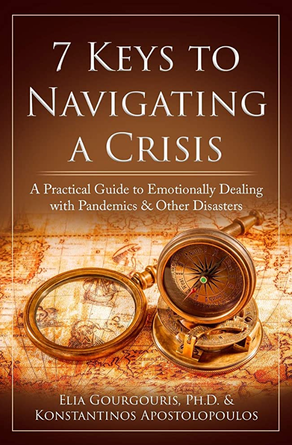|
Epicurus, the Greek philosopher said that :
"It is not so much our friends' help that helps us as much as our confident knowledge that they will help us." In other words, what "helps" us is the reassuring idea that , "If I ever needed this friend, she or he would be there for me. I can depend on them..." Why? Because friends, (even brand new ones) share common values, like for example, with my friends, we share the deep rooted values of Greek philosophy, like Virtue, Integrity, Courage and Kindness. So today I want to share with you a discussion with a man who I am honoured to call my friend! Click the Video and share your comments afterwards!
0 Comments
Is there life after death? Plato, the ancient Greek philosopher, did discuss the concept of reincarnation, although his views on the matter were not entirely consistent throughout his writings. In some of his dialogues, particularly in the "Phaedrus," "Meno," and "Phaedo," Plato presents the idea of the soul's immortality and its potential for reincarnation. According to Plato, the soul is immortal and exists before and after the body. He believed that the soul is eternal and has knowledge that is innate, but it becomes obscured and forgotten when the soul is incarnated into a physical body. Plato viewed the body as a temporary vessel for the soul, which is in a continuous cycle of rebirth. WATCH THIS WEEK'S EPISODE OF 'ALKISTIS-TV-YOUTUBE' FOR FULL DETAILS INCLUDING THE VIEWS OF #Nietzche #Buddhism #Stoicism
In this week's guided meditation, we reflect on the the Stoic Art of Acquiescence; Accepting and loving whatever is happening, by focusing on a a quote by Marcus Aurelius,
" Oh world, I am in tune with every note of the great harmony. For me nothing is early, nothing late, if it be timely for Thee. Oh Nature, all that thy seasons yield is fruit for me." The Meditations of Marcus Aurelius is a scrapbook of thoughts the emperor wrote to himself, reminders on how to behave and what to expect in life. It is unlikely that Marcus Aurelius ever intended the writings to be published and the work has no official title, so "Meditations" is one of several titles commonly assigned to the collection. Marcus ruled the Roman empire from AD 161-180. He wrote the 12 books of the Meditations in as a source for his own guidance and self-improvement. Sam Harris is a philosopher who is well-known for his views on free will. He argues that free will is an illusion and that our actions are determined by prior causes beyond our control, such as genetics and environmental factors. According to Harris, our conscious thoughts and decisions are the result of unconscious processes in the brain, and we have no control over these processes. He suggests that the idea of free will is a deeply ingrained cultural myth that has been perpetuated by religion and philosophy, and that a better understanding of the nature of consciousness and the brain will ultimately lead to a more accurate view of human behavior. Stoicism is a philosophy that originated in ancient Greece and emphasizes personal responsibility and self-control. Stoics believed that the universe is deterministic, but they also believed in the existence of free will. They argued that while we cannot control external events, we can control our responses to those events, and that this is where our freedom lies. Watch Video to Find out where these philosophies overlap and differ; Includes a powerful exercise to determine for yourself if free-will exists!
Dr. Elia Gourgouris is the author of the #1 Amazon best-selling book 7 Paths to Lasting Happiness and 7 Keys to Navigating a Crisis: A Practical Guide to Emotionally Dealing with Pandemics & Other Disasters. He is the President of The Happiness Center and Founding Partner at The Global Institute of Thought Leadership. In this interview he shares some of the concepts in his book: "7 Keys to Navigating a Crisis: A Practical Guide to Emotionally Dealing with Pandemics & Other Disasters". We speak about the 4 personality types in handling a crisis...
His book is a must-read for anyone seeking to thrive during these turbulent times. In our interconnected world, we are all vulnerable and impacted (directly or indirectly) by global events. In this easy-to-read book, Dr Elia Gourgouris and Konstantinos Apostolopoulos provide 7 Keys to Navigating a Crisis. These powerful yet practical insights, help minimize the negative impact of pandemics, natural disasters, financial meltdowns, or any other major disruptions on our lives. Drawing from a wealth of personal and professional experiences, the authors share simple truths that have helped many of their clients thrive in the face of adversity. This practical guide is full of "Points to Ponder", "Questions to Consider", and "Action Items" that can help readers apply the information directly to their lives. Whether the crisis is global or personal, this book can help the reader navigate and rise above these challenges. Here's the link to the book on AMAZON. |
TRY MY 3-STEP METHOD FOR YOURSELF THROUGH THIS FREE
VIDEO-COURSE: Archives
January 2025
Categories
All
|
|
All Rights Reserved 2019 Alkistis Agiorgiti
|



 RSS Feed
RSS Feed
